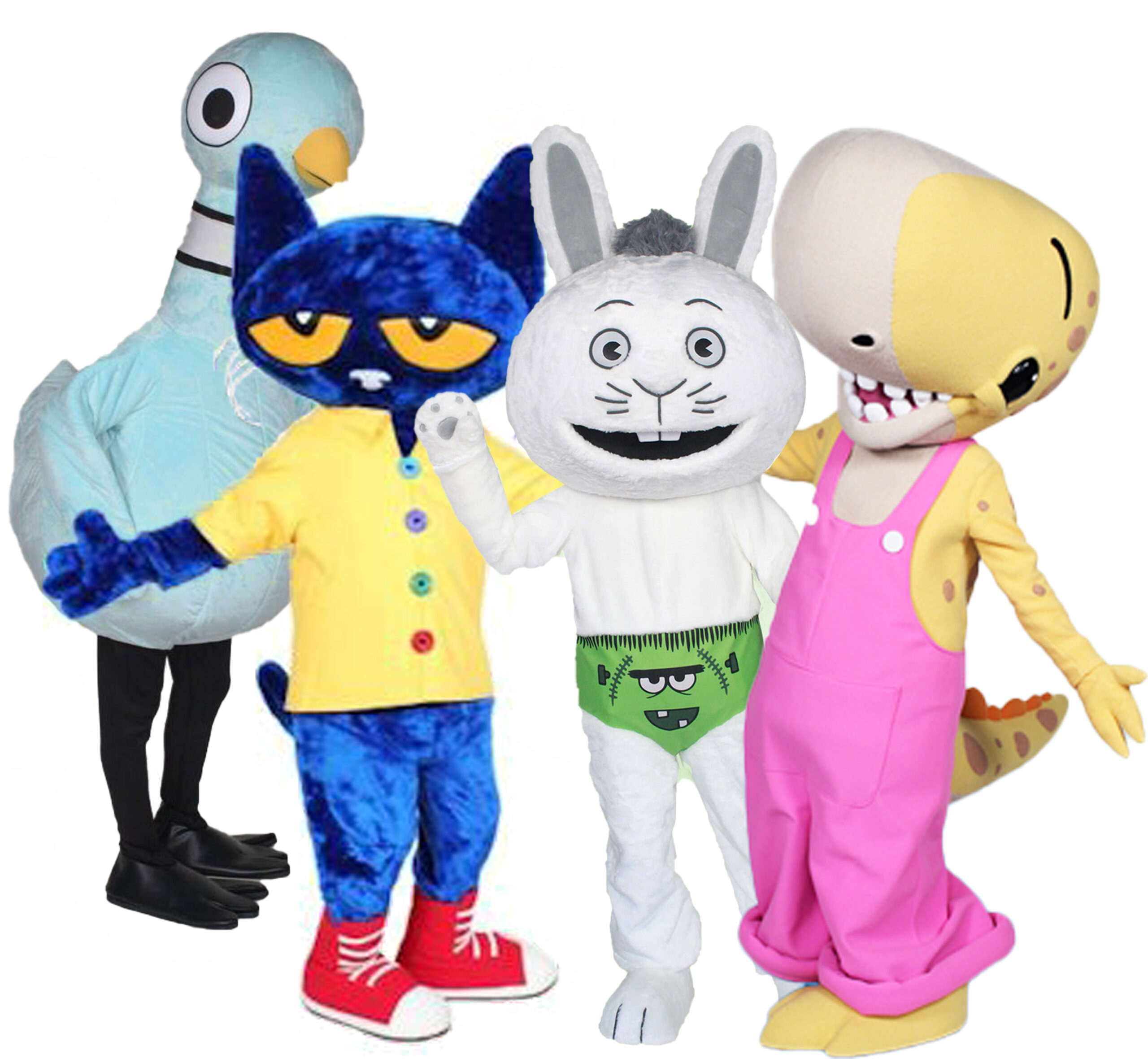
Educators and parents continually seek innovative ways to enhance literacy skills in young learners. An unconventional, yet remarkably effective approach of enhancing literacy skills involves the use of mascots. These friendly, animated characters play a pivotal role in capturing imaginations, fostering a positive learning environment, and ultimately, boosting literacy skills.
Mascots have an innate ability to capture the attention of children in a way that traditional teaching methods may struggle to achieve. Mascots create a sense of excitement, they making learning a fun, and create a memorably engaging experience. When literacy activities are associated with a beloved mascot, children are more likely to approach reading and writing with enthusiasm. A book character mascot not only encourages a deeper understanding of the book, but also encourages the reading of other books. From interactive games to hands-on projects, mascots make literacy education a dynamic and holistic experience.
Mascots are relatable and approachable figures that expand the imagination and allow children to connect with on a personal level. By incorporating mascots into literacy programs, educators instantly create a sense of fun, familiarity, and comfort, which is crucial for effective learning. These feelings work to create lifelong learners. Children are more likely to view reading, writing, and learning as enjoyable activities and they develop a natural curiosity for storytelling and a deeper appreciation for reading and writing.
Mascots can be powerful tools for positive reinforcement in the learning process. When children achieve literacy milestones or complete reading challenges, mascots can be there to celebrate their successes. This positive feedback creates a sense of accomplishment and boosts children’s confidence, motivating them to further explore the world of books and literacy.
In the ever-evolving landscape of education, the role of mascots in enhancing literacy skills among children is gaining recognition. These animated characters bring an element of joy, excitement, and relatability to the learning process, making literacy more accessible and enjoyable for young minds. By leveraging the power of mascots, educators and parents can ignite a passion for reading and writing, setting the stage for a lifelong love of learning in the hearts of our youngest learners.

